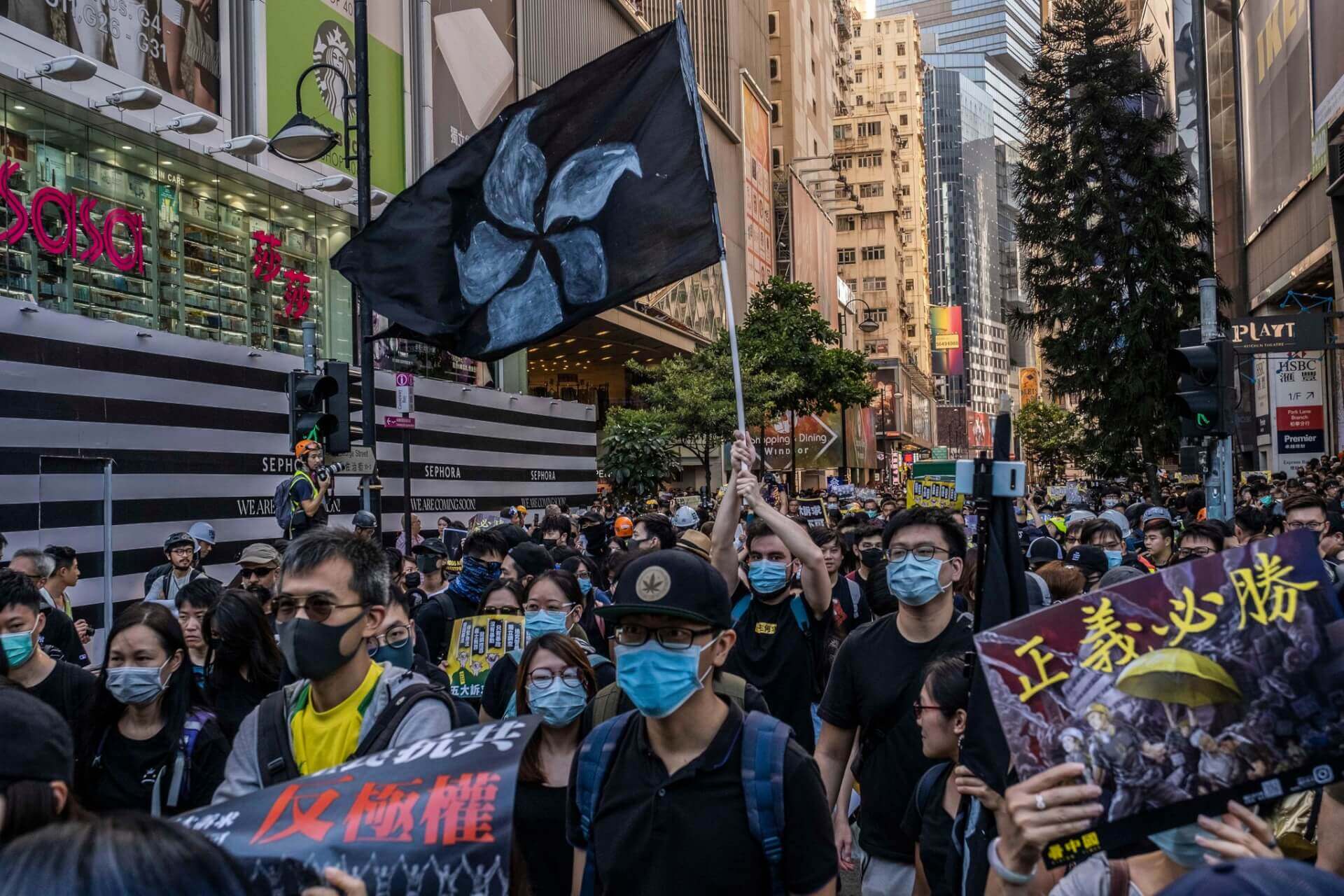Hong Kong police offered bounties on Thursday for information that will help capture the five overseas activists accused of national security crimes. The move drew prompt rebukes from the US and the UK.
Arrest warrants were issued for Johnny Fok and Tony Choi, who host a YouTube channel focusing on current affairs, and pro-democracy activists Simon Cheng, Hui Wing-ting, and Joey Siu.
Steve Li, chief superintendent of the police national security department, said that authorities received about 500 pieces of information since the bounties were announced. While some of the information was valuable to the police, no arrest has been made yet.
The financial hub’s authorities said that the five wanted individuals, all of whom now live abroad, would be pursued “till the end,” and announced HK$1,000,000 (US$128,000) bounties for help in catching them.
Li said the five activists committed various offences including colluding with foreign forces and incitement to secession.
“They all betrayed their own country and betrayed Hong Kong,” he said in the news conference. “After they fled overseas, they continued to engage in activities endangering national security,” he added. The activists’ social media profiles indicated they had moved to the US and the UK.
The police chief added that authorities will try their best to cut the financial support to the wanted activists.
Following the introduction of the national security law (NSL) in 2020, many leading pro-democracy activists were arrested, silenced, or forced into self-exile. Since its introduction, democratic freedom in the former British colony has eroded drastically.
US and UK condemn Hong Kong for putting bounties on overseas activists
— FRANCE 24 (@FRANCE24) December 14, 2023
➡️ https://t.co/uRQtzmJGP8 pic.twitter.com/f6Lym1Gkvy
However, China and Hong Kong’s governments have hailed the security law for bringing back stability to the Chinese semi-autonomous region.
Similarly, in July, Hong Kong warned eight other activists, who now live abroad, that they would be pursued for life under bounties put on them. It was the first such instance under the draconian security law. The authorities’ announcement drew flak from Western governments.
The US condemned the move, with US State Department spokesperson Matthew Miller saying that his country “advocates for democracy and freedom” and activists in the US “will continue to enjoy their constitutionally guaranteed freedoms.”
“We deplore any attempt to apply the Beijing-imposed National Security Law extra-territorially, and reiterate that Hong Kong authorities have no jurisdiction within United States borders,” he added.
Meanwhile, the UK called it “a threat to our democracy and fundamental human rights.”
UK Foreign Secretary David Cameron added he had instructed British officials in Hong Kong, Beijing, and London to “raise this issue as a matter of urgency.”
On Wednesday, police arrested four other people on suspicion of funding former pro-democracy lawmakers Nathan Law and Ted Hui — two of the eight activists targeted by the police in July — through an “online subscription and crowdfunding platform.”
The four were alleged to have provided financial support to others committing secession. The amount involved ranged from HK$10,000 to 120,000 (US$1280 to US$15,400).

